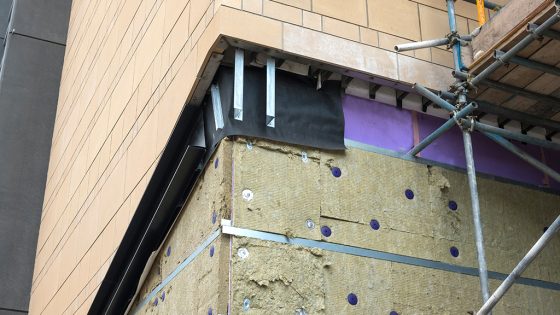Building safety could be jeopardised if “reckless” plans to scrap EU-era regulations go ahead, the government has been warned.
Legislation is now going through parliament that will see thousands of laws dating from the UK’s membership of the EU automatically expire after December, unless they are specifically kept or replaced.
Concerns have been raised that key pieces of safety legislation such as the recently implemented Building Safety Act will be undermined if the regulations on which they are based no longer exist.
Liberal Democrat peer Baroness Sarah Ludford warned of “perverse and damaging” consequences if the EU regulations were stripped away.
“The unexpected consequences of kicking out the EU undergirding of UK law could be very perverse and damaging, with what is left lacking legal coherence,” she said in the second-reading debate for the Retained EU Law Bill in the House of Lords.
“In the field of construction, the Building Safety Act 2022 is premised on definitions in a set of 20src5 regulations – the Construction (Design and Management) Regulations – implementing an EU directive and creating a framework for health and safety in construction.
“Unless these regulations are kept switched on, the 2022 Act of Parliament will have its underpinning yanked away. What then exists?”
The wide-ranging Building Safety Act was introduced in the wake of the Grenfell Tower tragedy and includes provisions such as the creation of the Building Safety Regulator and the Construction Products Regulator. It also gives the government powers to restrict the business activities of companies that refuse to remediate building defects.
Describing the bill as “extremely unwise, ill-considered and reckless”, she said it would create widespread legal confusion as no one knew the exact number of provisions affected.
“The government has no idea of how many instruments the bill will affect; there is indeed no guarantee that all retained law subject to its provisions will be identified,” she said.
In response, Lord Martin Callanan, now a junior minister at the newly created Department for Energy Security and Net Zero, said the government was “committed to maintaining comprehensive safety standards”.
“I can confirm that the government will not, of course, weaken building safety standards,” he said.
The method of letting the EU-era laws expire, known as a “sunset”, is the quickest and most effective way to accelerate the review of the majority of such laws, he said, and a major cross-government programme was already underway to identify retained EU law that could be reformed, repealed or replaced.
“Without the sunset as a default for retained EU law, we risk unsuitable or obsolete EU laws still being on our statute book in src0, src5 or even 20 years’ time, which should not be acceptable to anyone in this house,” said Lord Callanan.
Bill Dunkerley, a lawyer at Pannone Corporate, told Construction News that the bill in its current form risked sunsetting overnight EU-derived health and safety legislation.
“If this happens, it will represent a fundamental – not to mention physically dangerous – shift in workplace compliance,” he said. “Although the Building Safety Act is not a piece of retained EU legislation and will not itself disappear were the bill to come into force, it is premised on definitions contained within the Construction, Design and Management Regulations, which are retained legislation, as are the Building Regulations themselves.
“It cannot have been parliament’s intention when introducing the bill to undermine or neuter existing and future legislation, especially a statute of such wide-ranging importance as the Building Safety Act.”
Last month, a coalition of groups launched a campaign to prevent the government from scrapping health and safety laws, which they say have saved, and continue to save, lives within the construction industry.
Laws set to automatically be scrapped include the Construction Design and Management Regulations, Management of Health and Safety at Work Regulations, Work at Height Regulations and the Personal Protective Equipment (PPE) at Work Regulations.
The coalition, which includes the Royal Society for the Prevention of Accidents, the British Safety Council and the Institution of Occupational Safety and Health, warned that rushing to implement the bill without clarity on the future of health and safety laws would “undermine our health and safety standards and protections”.

Comments are closed